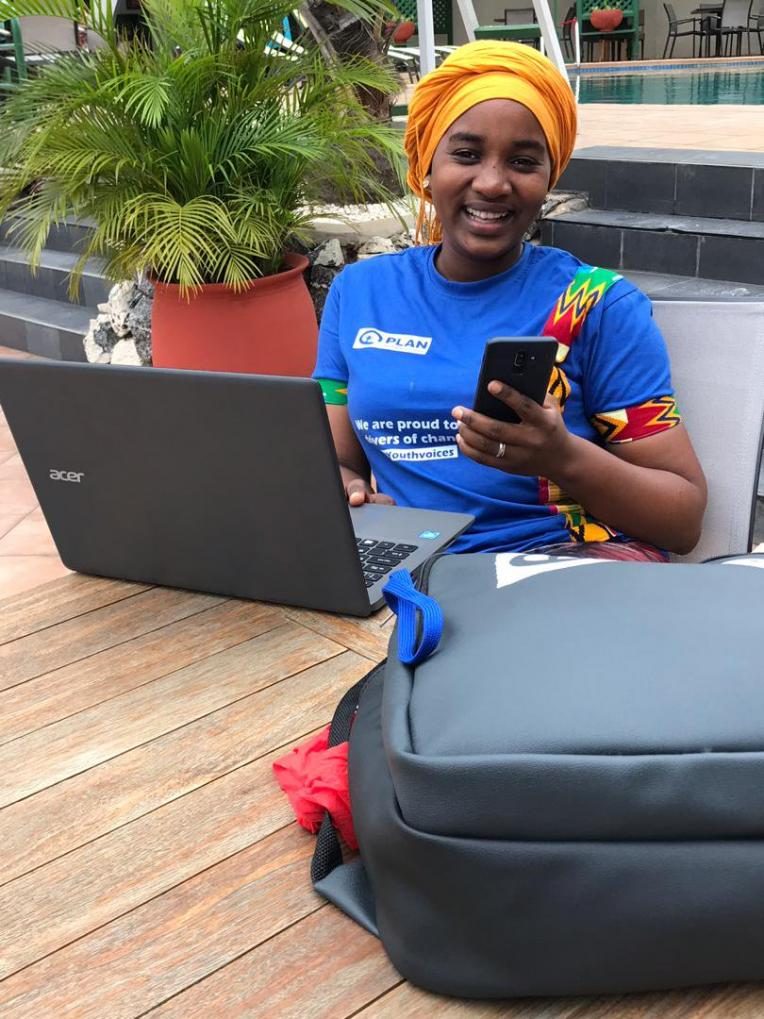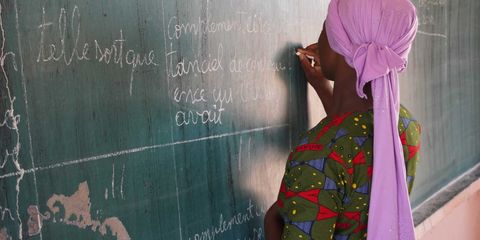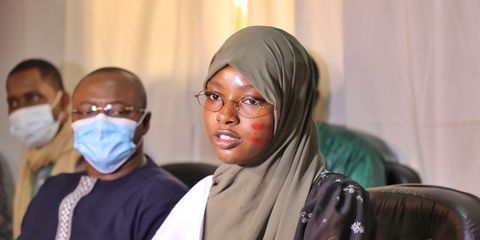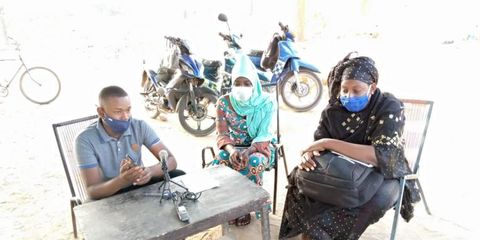Having stopped her own child marriage at the age of 13, Aissata, now 24, is speaking out for girls’ rights across Mali.

“Coming from a polygamous family, where it is customary to marry girls very early, at around 13, I was almost subject to an early marriage. Fortunately for me, I received training on children’s rights from Plan International. I opposed my marriage with strong arguments and my father listened to me,” Aissata explains.
Now 24, Aissata has been involved in community life since a child and first started working with Plan International in 2010. A committed activist for children and girls’ rights from a young age, her passion for the subject saw her invited to join Mali’s national children’s parliament.
“I dream of a world where access to safe education is within everyone’s reach.” Whether it is keeping girls in school, the fight against early marriage, childhood poverty or the abandonment of female genital mutilation, Aissata is active on all fronts.
Today, Aissata serves as president of the National Consultative Council for Youth, and says her aim is to encourage all children to join advocacy groups as she recognises the support that they provide to children and young people. “The young woman I am today, is thanks to Plan International and the groups where I learned everything.”
Calling for an end to child marriage and FGM
“I want a safe and inclusive environment where every child can develop to his or her full potential.”
Aissata
One of the areas Aissata feels strongly about is gender-based violence, specifically female genital mutilation and child marriage. “When we talk about the consequences of female genital mutilation, many parents refer us to our own cases, telling us: you have been cut, where are the consequences?”
“My mother wanted to cut my niece despite my protests. Remembering that I had an awareness video, I showed it to her, and she collapsed. Since then, she has become aware of the consequences of the practice and has committed herself to banning FGM from the family. None of her granddaughters is cut anymore.”
In Aissata’s community, the issue of early marriage remains, but numbers are declining. Aissata regularly raises awareness of the issue and makes sure she does not miss any major events where her voice can be heard. She recently helped make a film which tells the story of a girl who has married early and the consequences for her future.
Standing up for girls’ rights
Well known for her activism in the field of children’s rights, Aissata is regularly called on to assist in cases of violence against children and women. “I help as best I can by redirecting them to the appropriate services and by raising awareness among their relatives. I am not a judge, but I always try to solve their problems amicably and if I am not able to do so, I ask for help from the authorities.”
Aissata often attends national and international meetings and is involved anywhere that children’s rights and equality for girls is discussed. “My interest lies in this direction. I want a safe and inclusive environment where every child can develop to his or her full potential,” Aissata concludes.


